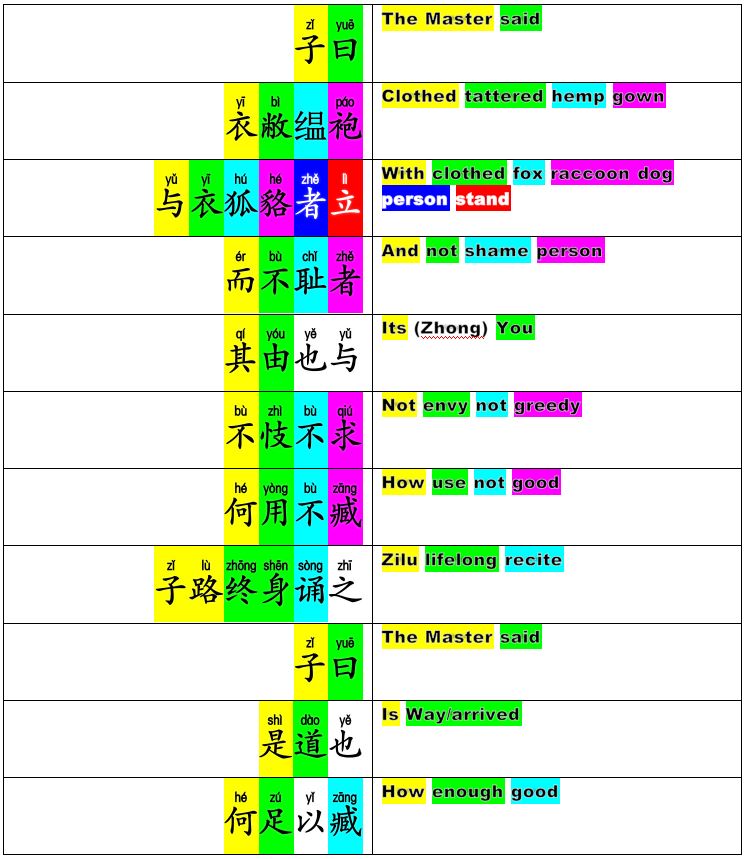Analects 9.31
Original Text:
唐棣之华偏其反而岂不尔思室是远尔子曰未之思也夫何远之有
Translation:

Other Translations:
“The flowery branch of the wild cherry
How swiftly it flies back!
Of course I am thinking of you,
It is just that your house is so far away.”
The Master said, “He was not really thinking of her. If he were, what difference would the distance make?”
Confucius, & Slingerland, E. (2003). Analects: With selections from traditional commentaries. Hackett Publishing.
The blossoms of the cherry,
how they flutter and turn.
It’s not that I don’t think of you,
but your house is far away.
The Master said, He doesn’t really think of her. If he did, why would he worry how far it was?
Confucius, & Watson, B. (2007). The Analects of Confucius. Columbia University Press.









